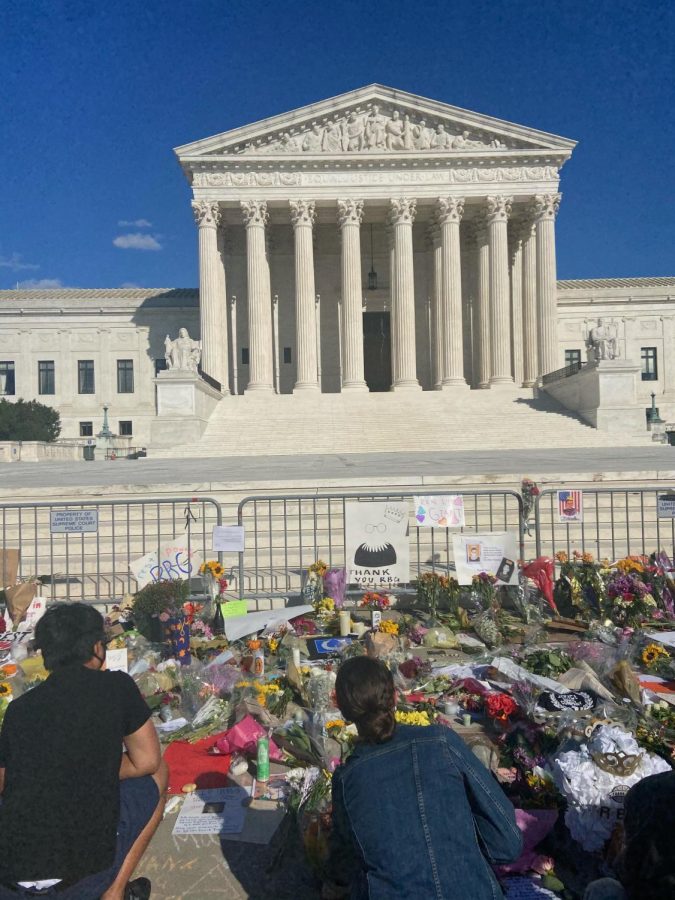Death of a Supreme Court Justice and What Happens Next
September 30, 2020
The death of Ruth Bader Ginsburg on Sep 18 doesn’t just mean the loss of a great and inspirational woman, it also marks the start of significant political change in the United States.
Before the death of RBG, the Supreme Court was already leaning conservative with a 5-4 majority. Her death creates a very rare opportunity for Republicans: if Trump can confirm a justice before the end of his presidency, the SCOTUS will be at a 6-3 conservative majority.
“From the constitutional and historical tradition standpoint, it appears clear that the president should be making the nomination,” AP Government teacher Mr. Smialek said.
Attempting to confirm the next SCOTUS justice is definitely not unconstitutional, however, it may not be the most strategic move for Trump. Democrats are going to use it against him and Senate Republicans as much as possible. Many see it as an act of hypocrisy.
“The Republicans in the Senate blocked Obamas appointee months before the general election in 2016 because it was an election year, but now with people already voting and n person voting being just weeks away they’re ok with approving an appointee,” junior Matt Jurich said.
Even though Democrats are certainly going to make it as difficult as possible for Trump to appoint his nominee, which is now Amy Coney Barrett, it could be worth it.
“For Republican insiders worried about electoral backlash from the voting public over this appointment, they frankly might be willing to take the risk,” AP Government teacher Mr. Stiles said. “Losing the Presidency and Senate as a potential cost is well worth the benefit of a 10-15-year Conservative majority on the Supreme Court where judges serve for life.”
More likely than not, Trump’s nominee will be confirmed, giving conservatives more power in the Supreme Court than they have had in a significant amount of time. It’s difficult to predict exactly how this would change the US though.
“My hesitation with predicting the impact of a Justice is not knowing what issues and cases will come before the court because the Judiciary can only respond to the cases before it,” Mr. Smialek said. “They cannot proactively issue rulings to change policy.”



